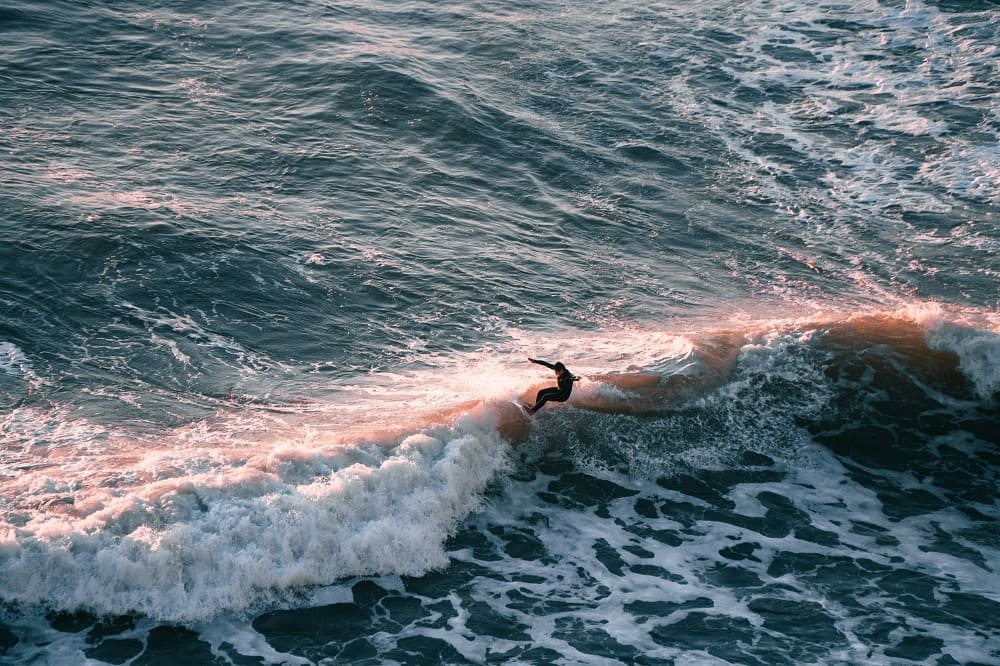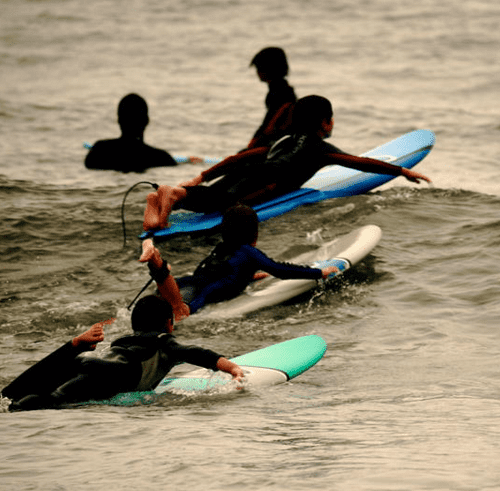Surfing, a sport deeply intertwined with the rhythm of the ocean, holds a rich and storied history dating back centuries. From its humble origins in the Pacific Islands to its global prominence today, the evolution of surfing is a testament to the enduring connection between humans and the sea.

Origins of Surfing
The roots of surfing trace back to ancient Polynesia, where riding waves was not just a recreational activity but a sacred art form. Early Polynesians, such as the Hawaiians, viewed surfing as a spiritual practice, with surfers revered as skilled practitioners who could harness the energy of the ocean. Wooden boards crafted from local materials like koa wood were meticulously carved and cherished, each one a reflection of the culture and traditions of the island communities.
Colonial Encounters
As European explorers began to navigate the vast expanses of the Pacific, they encountered the indigenous peoples of the islands and witnessed the art of surfing firsthand. Accounts from early explorers, such as Captain James Cook, describe the awe-inspiring sight of Polynesian surfers gliding effortlessly across the waves. These encounters sparked curiosity and fascination among European settlers, leading to the spread of surfing beyond the shores of the Pacific Islands.
Rise of Modern Surfing
The 20th century witnessed a resurgence of interest in surfing, fueled by innovations in board design, advancements in technology, and a growing appetite for adventure and leisure. Pioneers like Duke Kahanamoku, often regarded as the ambassador of surfing, played a pivotal role in popularizing the sport on the global stage. With the introduction of lighter materials like fiberglass and foam, surfboards became more accessible to a broader audience, paving the way for the surfing boom of the 1960s and 1970s.

Cultural Impact
Surfing transcends mere sport; it is a way of life, a cultural phenomenon that has left an indelible mark on society. From the laid-back lifestyle of coastal communities to the iconic imagery of surfers riding majestic waves, surfing has captured the imagination of people around the world. Artists, filmmakers, and musicians have drawn inspiration from the allure of surfing, contributing to its enduring legacy in popular culture.
Challenges and Conservation
Despite its widespread popularity, surfing faces numerous challenges, including environmental threats, overcrowding at popular breaks, and cultural appropriation. As stewards of the ocean, surfers have a responsibility to protect the fragile ecosystems that sustain their passion. Initiatives aimed at beach cleanups, marine conservation, and sustainable surfing practices are essential for preserving the natural beauty of coastal regions for future generations to enjoy.
Looking Ahead
As we reflect on the history of surfing, we are reminded of the profound connection between humanity and the ocean. Whether riding the waves of Polynesia or carving swells off the coast of California, surfers continue to embrace the timeless allure of the sea. As we navigate the challenges of the modern world, may we draw inspiration from the spirit of surfing – a celebration of freedom, expression, and the boundless power of nature.
